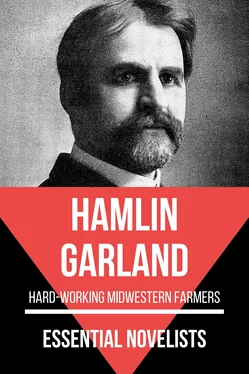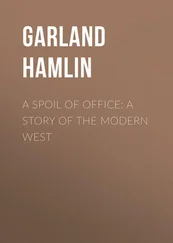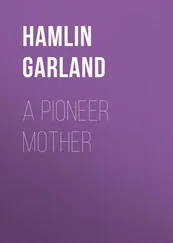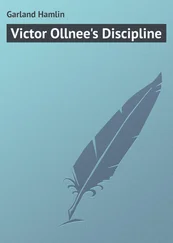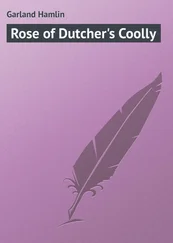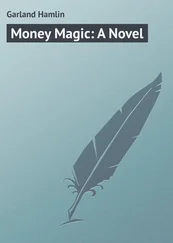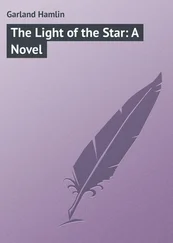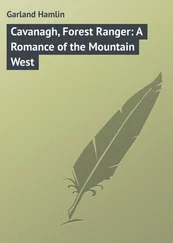William hung his head. "Well, I dunno!—I suppose my dyspepsy has made me kind o' irritable," he said by way of apology.
My father was the historian of most of these exploits on the part of his brothers-in-law, for he loved to exalt their physical prowess at the same time that he deplored their lack of enterprise and system. Certain of their traits he understood well. Others he was never able to comprehend, and I am not sure that they ever quite understood themselves.
A deep vein of poetry, of sub-conscious celtic sadness, ran through them all. It was associated with their love of music and was wordless. Only hints of this endowment came out now and again, and to the day of his death my father continued to express perplexity, and a kind of irritation at the curious combination of bitterness and sweetness, sloth and tremendous energy, slovenliness and exaltation which made Hugh McClintock and his sons the jest and the admiration of those who knew them best.
Undoubtedly to the Elwells and Dudleys, as to most of their definite, practical, orderly and successful New England neighbors, my uncles were merely a good-natured, easy-going lot of "fiddlers," but to me as I grew old enough to understand them, they became a group of potential poets, bards and dreamers, inarticulate and moody. They fell easily into somber silence. Even Frank, the most boisterous and outspoken of them all, could be thrown into sudden melancholy by a melody, a line of poetry or a beautiful landscape.
The reason for this praise of their quality, if the reason needs to be stated, lies in my feeling of definite indebtedness to them. They furnished much of the charm and poetic suggestion of my childhood. Most of what I have in the way of feeling for music, for rhythm, I derive from my mother's side of the house, for it was almost entirely Celt in every characteristic. She herself was a wordless poet, a sensitive singer of sad romantic songs.
Father was by nature an orator and a lover of the drama. So far as I am aware, he never read a poem if he could help it, and yet he responded instantly to music, and was instinctively courtly in manner. His mind was clear, positive and definite, and his utterances fluent. Orderly, resolute and thorough in all that he did, he despised William McClintock's easy-going habits of husbandry, and found David's lack of "push," of business enterprise, deeply irritating. And yet he loved them both and respected my mother for defending them.
To me, in those days, the shortcomings of the McClintocks did not appear particularly heinous. All our neighbors were living in log houses and frame shanties built beside the brooks, or set close against the hillsides, and William's small unpainted dwelling seemed a natural feature of the landscape, but as the years passed and other and more enterprising settlers built big barns, and shining white houses, the gray and leaning stables, sagging gates and roofs of my uncle's farm, became a reproach even in my eyes, so that when I visited it for the last time just before our removal to Iowa, I, too, was a little ashamed of it. Its disorder did not diminish my regard for the owner, but I wished he would clean out the stable and prop up the wagon-shed.
My grandmother's death came soon after our second visit to the homestead. I have no personal memory of the event, but I heard Uncle David describe it. The setting of the final scene in the drama was humble. The girls were washing clothes in the yard and the silent old mother was getting the mid-day meal. David, as he came in from the field, stopped for a moment with his sisters and in their talk Samantha said: "Mother isn't at all well today."
David, looking toward the kitchen, said, "Isn't there some way to keep her from working?"
"You know how she is," explained Deborah. "She's worked so long she don't know how to rest. We tried to get her to lie down for an hour but she wouldn't."
David was troubled. "She'll have to stop sometime," he said, and then they passed to other things, hearing meanwhile the tread of their mother's busy feet.
Suddenly she appeared at the door, a frightened look on her face.
"Why, mother!—what is the matter?" asked her daughter.
She pointed to her mouth and shook her head, to indicate that she could not speak. David leaped toward her, but she dropped before he could reach her.
Lifting her in his strong arms he laid her on her bed and hastened for the doctor. All in vain! She sank into unconsciousness and died without a word of farewell.
She fell like a soldier in the ranks. Having served uncomplainingly up to the very edge of her evening bivouac, she passed to her final sleep in silent dignity.
The Home in the Coulee
Our postoffice was in the village of Onalaska, situated at the mouth of the Black River, which came down out of the wide forest lands of the north. It was called a "boom town" for the reason that "booms" or yards for holding pine logs laced the quiet bayou and supplied several large mills with timber. Busy saws clamored from the islands and great rafts of planks and lath and shingles were made up and floated down into the Mississippi and on to southern markets.
It was a rude, rough little camp filled with raftsmen, loggers, mill-hands and boomsmen. Saloons abounded and deeds of violence were common, but to me it was a poem. From its position on a high plateau it commanded a lovely southern expanse of shimmering water bounded by purple bluffs. The spires of LaCrosse rose from the smoky distance, and steamships' hoarsely giving voice suggested illimitable reaches of travel. Some day I hoped my father would take me to that shining market-place whereto he carried all our grain.
In this village of Onalaska, lived my grandfather and grandmother Garland, and their daughter Susan, whose husband, Richard Bailey, a quiet, kind man, was held in deep affection by us all. Of course he could not quite measure up to the high standards of David and William, even though he kept a store and sold candy, for he could neither kill a bear, nor play the fiddle, nor shoot a gun—much less turn hand-springs or tame a wild horse, but we liked him notwithstanding his limitations and were always glad when he came to visit us.
Even at this time I recognized the wide differences which separated the McClintocks from the Garlands. The fact that my father's people lived to the west and in a town helped to emphasize the divergence.
All the McClintocks were farmers, but grandfather Garland was a carpenter by trade, and a leader in his church which was to him a club, a forum and a commercial exchange. He was a native of Maine and proud of the fact. His eyes were keen and gray, his teeth fine and white, and his expression stern. His speech was neat and nipping. As a workman he was exact and his tools were always in perfect order. In brief he was a Yankee, as concentrated a bit of New England as was ever transplanted to the border. Hopelessly "sot" in all his eastern ways, he remained the doubter, the critic, all his life.
We always spoke of him with formal precision as Grandfather Garland, never as "Grandad" or "Granpap" as we did in alluding to Hugh McClintock, and his long prayers (pieces of elaborate oratory) wearied us, while those of Grandad, which had the extravagance, the lyrical abandon of poetry, profoundly pleased us. Grandfather's church was a small white building in the edge of the village, Grandad's place of worship was a vision, a cloud-built temple, a house not made with hands.
The contrast between my grandmothers was equally wide. Harriet Garland was tall and thin, with a dark and serious face. She was an invalid, and confined to a chair, which stood in the corner of her room. On the walls within reach of her hand hung many small pockets, so ordered that she could obtain her sewing materials without rising. She was always at work when I called, but it was her habit to pause and discover in some one of her receptacles a piece of candy or a stick of "lickerish root" which she gave to me "as a reward for being a good boy."
Читать дальше
